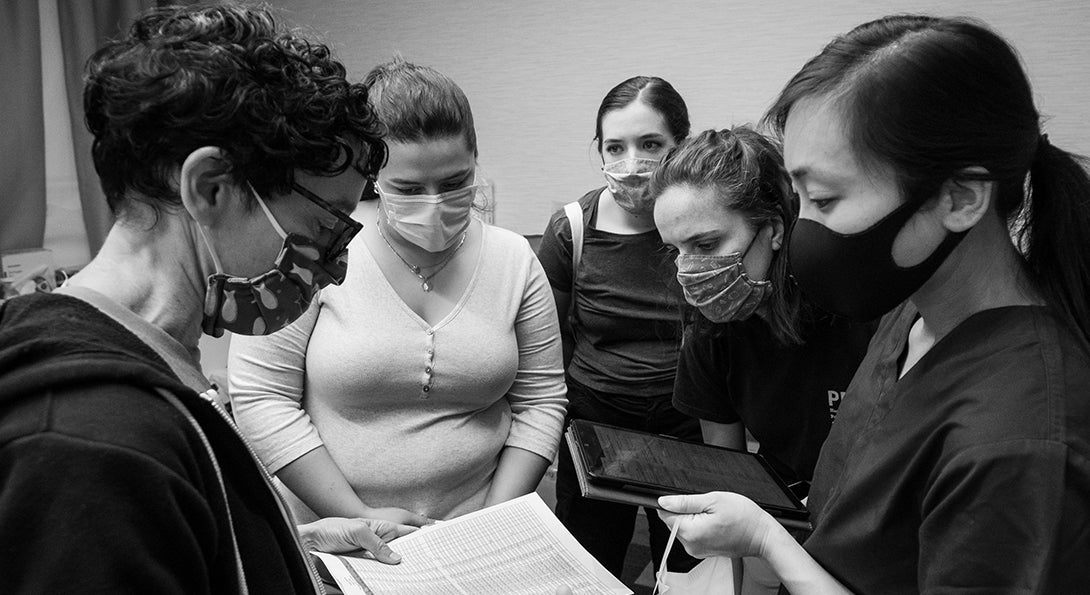UIC Nursing tests Chicago’s most vulnerable populations for COVID-19

UIC Nursing professor Rebecca Singer and College of Medicine professor Stockton Mayer lead testing team
Students and faculty from the UIC College of Nursing are conducting COVID-19 testing at homeless shelters, encampments, senior housing and long-term care facilities under a contract with the Chicago Department of Public Health.
The testing team is led by UIC Nursing assistant professor Rebecca Singer, DNP ’18, RN, and UIC College of Medicine assistant professor Stockton Mayer.
On any given day, there are between 4 and 15 people on site, largely made up of faculty and students from nursing and medicine. Students from dentistry, applied health sciences and engineering have also participated, and Singer says the team draws from a list of more than 50 paid employees and volunteers.
The testing sites are chosen by the Chicago Department of Public Health. Four to five times a week, the team conducts “point prevalence tests” to determine how many people test positive for COVID-19 on a given day at a given facility. Pre-licensure students are able to collect samples under the supervision of a licensed nurse or physician on site.
Charles Yingling, DNP, FNP-BC, FAANP, associate dean for practice and community partnerships, says the populations of people being tested are particularly at-risk: people there live in close proximity to one another and include the elderly, the ill and the homeless.
“This lined up very much with our college’s mission of social justice and care of vulnerable populations,” says Yingling. “By doing this, we can surveil these populations to understand the burden of disease and infections.”
Yingling says he’s “proud” that many of the workers on the project are students, because—if they’re not already—they’ll soon be responsible for responding to the COVID-19 pandemic as practicing nurses and clinicians.
Mayer, who is also a practitioner in the department of infectious diseases at UI Health, spearheaded the project but says Singer and her team are largely staffing it.
“[Dr. Singer] and the nursing students have truly molded the project into the smooth testing machine that it is today,” he says.
Watch: Video and photo essay of this work
‘Community nursing on steroids’
Norah Kilpatrick, a master’s degree student in the graduate-entry track, started out as a volunteer in April and is now a site coordinator. As a pre-licensure student, she says she values the on-the-ground experience during COVID-19, and that this is an opportunity to work on an interdisciplinary team.
Kilpatrick, who grew up in Chicago, calls it “community nursing on steroids” because of the diverse settings where the team travels.
She says although the interactions are short, she tries to create a connection with each patient to reduce anxiety and develop trust. The team can be intimidating, Kilpatrick says, arriving with carts of equipment, asking for personal information and taking an uncomfortable nasopharyngeal swab. They also wear head-to-toe personal protective equipment (PPE) —an N95 mask, face shield, gown and gloves.
“We have pictures of ourselves that we laminated and wear on the outside of our PPE,” she says. “[It’s telling them] ‘This is me in real life; I don’t always look like a space trooper.’”
She adds: “I think this has been a really great opportunity for students to practice our clinical skills, to feel like we’re part of team that responds to outbreaks and is actually making a difference during a pandemic.”